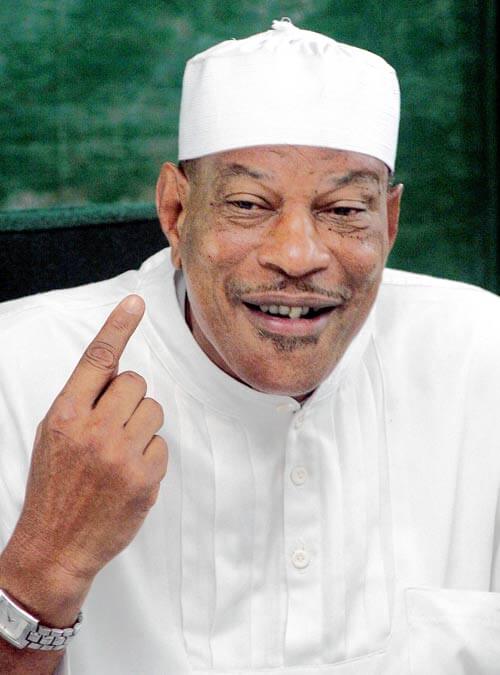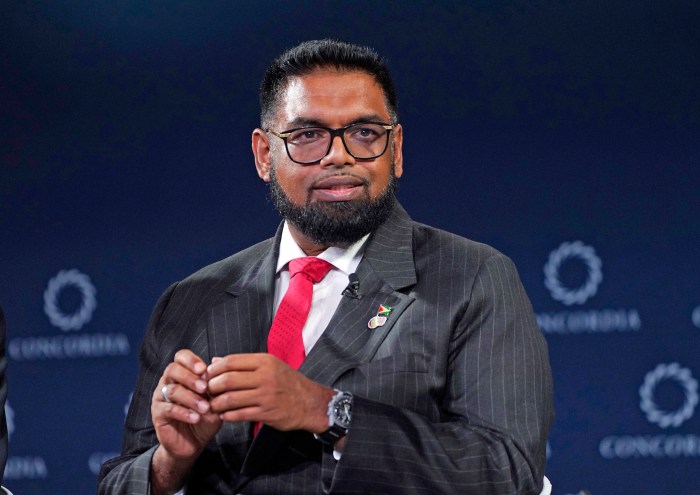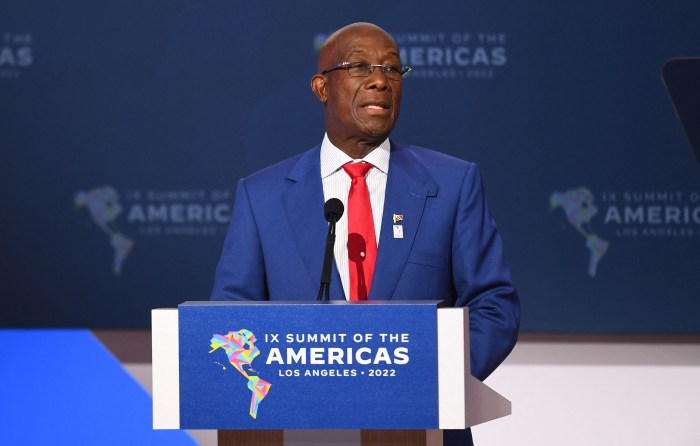He is not in the best of health these days but the man who tried to overthrow the then government of Prime Minister Ray Robinson in Trinidad and Tobago in July 1990 is preparing to take the witness stand to tell all he knows about events leading up to the bloody coup attempt more than 20 years ago.
Yasin Abu Bakr, the founding and longtime head of the Jamaat al Muslimeen, just weeks ago walked out of a Trinidad courtroom as a free man after a jury in his sedition trial for demanding Zakat payments from the Muslim community with menace to help the poor, was split on whether he was guilty or not. Authorities say they are considering a retrial.
But for now Bakr, nearly 70, is waiting to take the witness stand as the year-long commission of inquiry into the attempted coup on the then administration of Prime Minister Ray Robinson nears an end and as the country braces for the highlight of sessions that are sometimes ignored by the local media as being routine and pedantic.
No such platitudes are expected next week when the former policeman takes to the witness stand to explain how he and 113 other Muslimeen members, school age boy members included, decided it was time to kick the Robinson-Basdeo Panday coalition government from office for allegedly oppressing the poor and for harassing Muslimeen members.
The commission, led by retired Barbados Chief Justice David Simmons, has also summoned several former senior island judicial officials to explain to the commission the circumstances that kept Bakr and his rebels from life sentences and the death penalty through an amnesty that was granted by high ranking officials in the height of the coup attempt.
Early indications are that the commissioners will devote the entire week to allow Bakr to testify as he has already indicated that he has a lot to say about the reasons for trying to overthrow an elected government in the Caribbean trade bloc.
The group had stormed parliament while it was in session, holding several legislators hostage and shooting Robinson in the leg because he had refused to bow to their demands including orders to announce his resignation while Bakr and his men held journalists, businessmen and other top officials hostage at the state television station and other facilities.
More than 20 people were killed, dozens injured and large parts of commercial Port of Spain burned to the ground as well as looted during the week of mayhem.
Two key reasons standout for the coup, one had to do with a major and still unsettled row with authorities over ownership of land at Bakr’s headquarters in the western section of the capital and Bakr’s view that the policies of Robinson’s administration were oppressive and unnecessary as the island is rich in oil and gas resources.
And so the commissioners have said they are anxious to hear both from Bakr, head of the Jamaat al Muslimeen and anyone connected with the final days of the week long trauma in TT as the end of the hearings are in sight.























